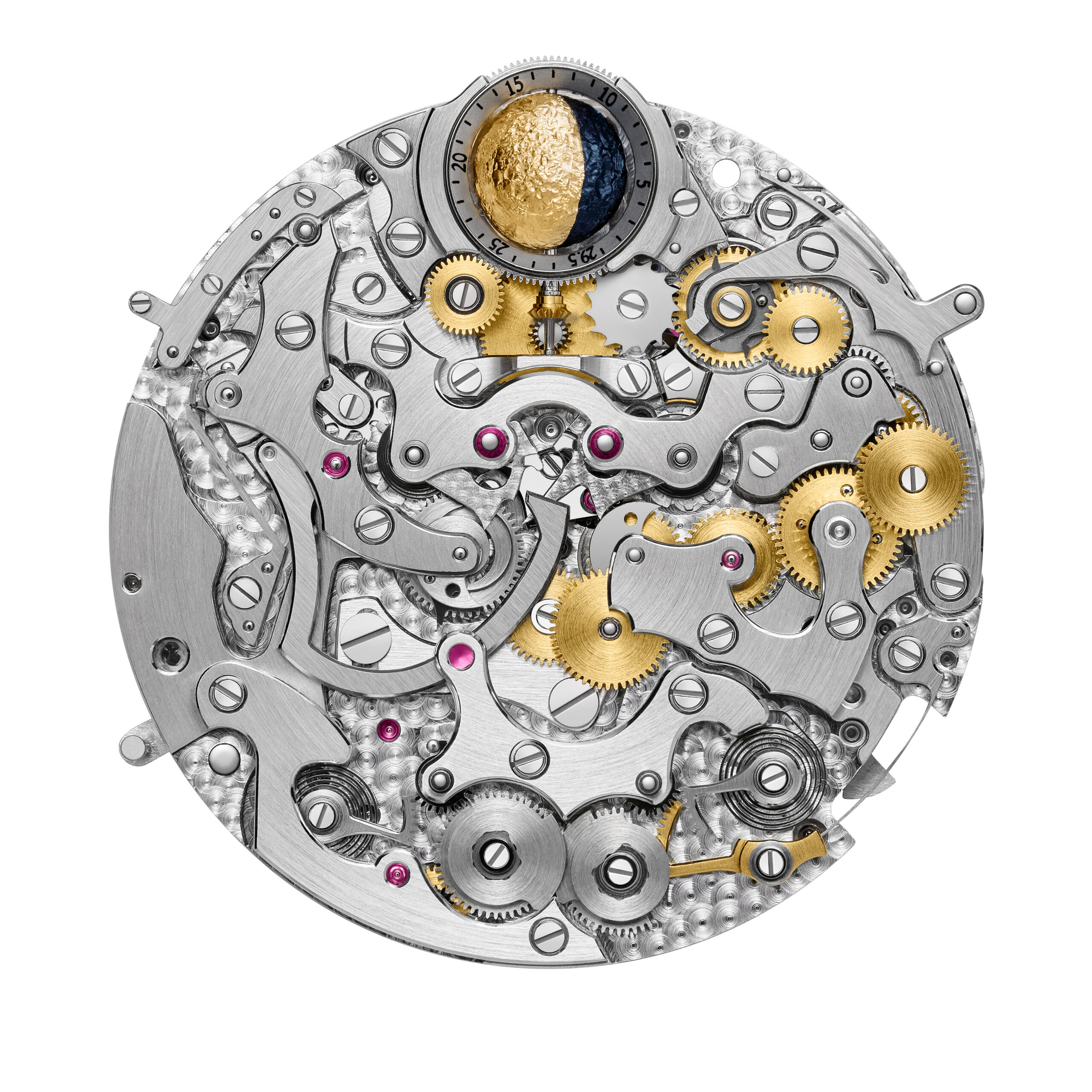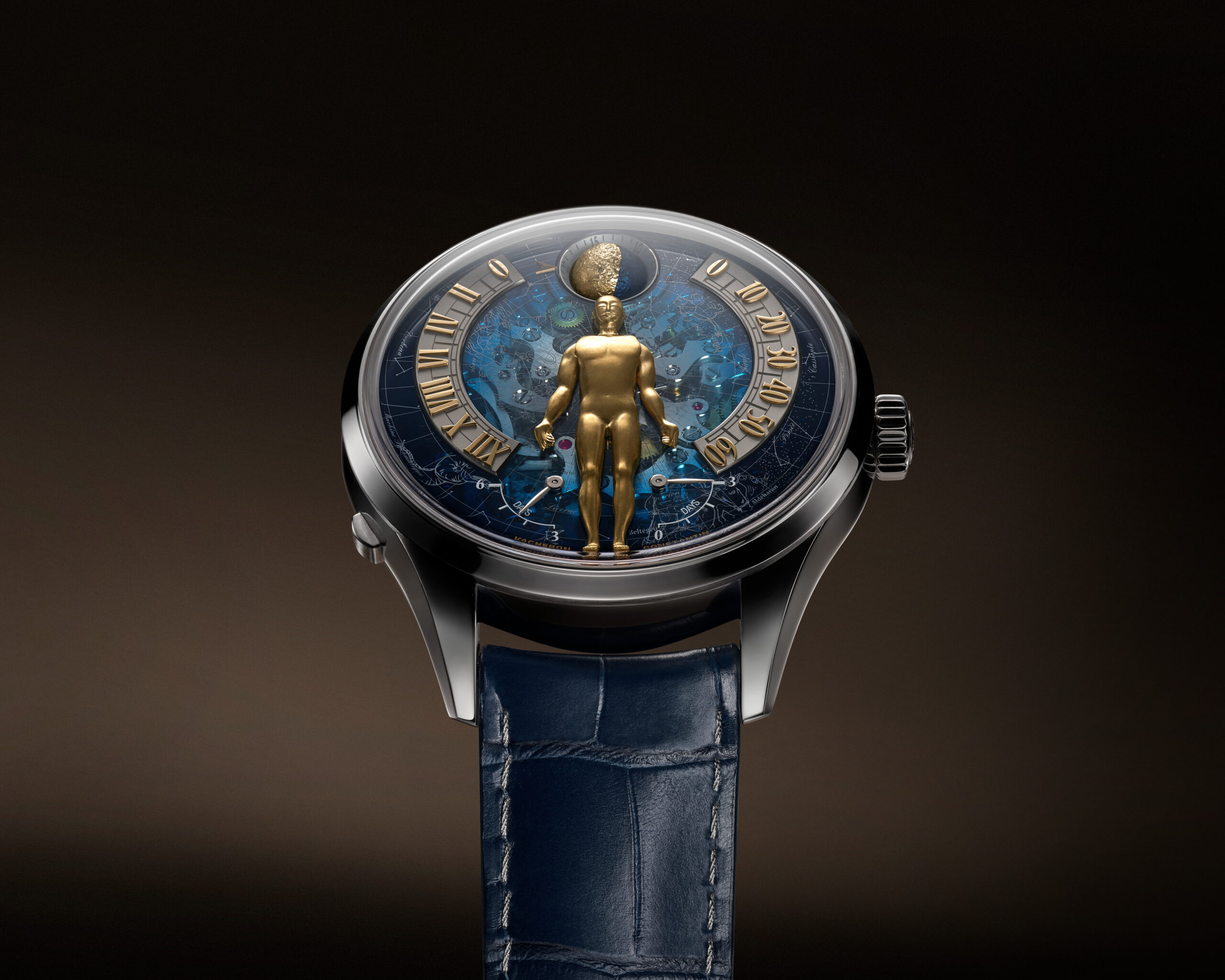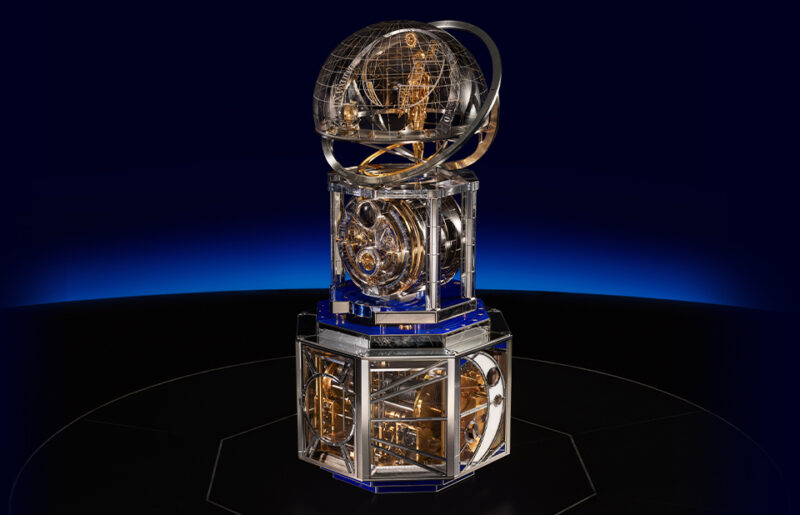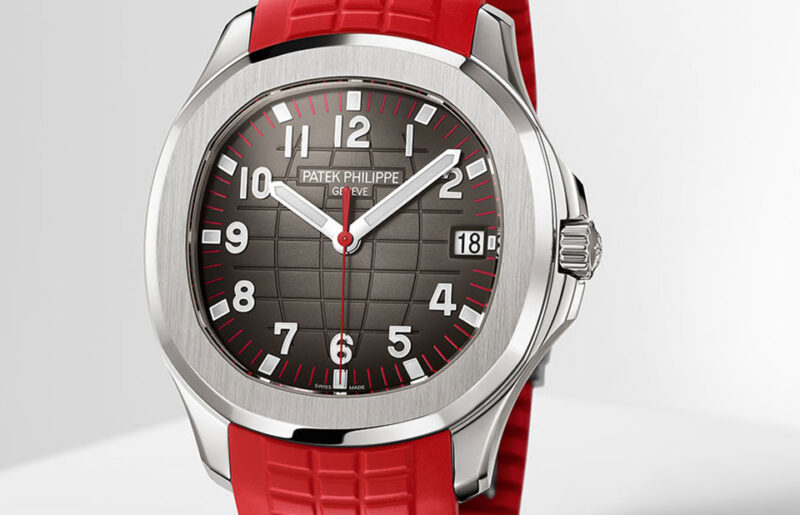Vacheron Constantin 270th anniversary: Métiers d’Art Tribute to the Quest of Time
News
Vacheron Constantin 270th anniversary: Métiers d’Art Tribute to the Quest of Time
Summary
For its 270th anniversary, Vacheron Constantin has pulled out all the stops, with a series of launches that prove that even after almost three centuries, the Maison remains a powerhouse of technical prowess and artistic mastery.
If you’re one of the 20 extremely lucky individuals destined to own the Oscar-worthy Metiers D’Art Tribute to the Quest of Time, we can imagine the acceptance speech will be a pretty emotionally charged one, too. This grand, golden, celestial complication showcases, by way of an arresting gold figurine set against a sky laden with symbolism, the artistic legacy and mechanical excellence of the oldest watch brand in the world. It puts two of Vacheron Constantin’s most renowned signatures: celestial complications and retrograde displays, at the centre of a commemorative and unforgettable timepiece. It piece pays homage to the astronomical clock La Quête du Temps, unveiled yesterday as part of the 270th anniversary celebrations, but interprets its mechanical poetry in a wearable form.
The beating heart: Calibre 3670
At the core lies the manually wound Calibre 3670, a movement of 512 components, certified with the Poinçon de Genève, and the subject of four pending patents. Its innovations include a governor for the retrograde displays, ensuring the bi-retrograde hours and minutes snap back in perfect unison at midnight; a sequential double power reserve display stretching across six days; and a spherical moon phase showing not only the phase itself but the precise age of the moon, correctable at any time without risk to the mechanism.
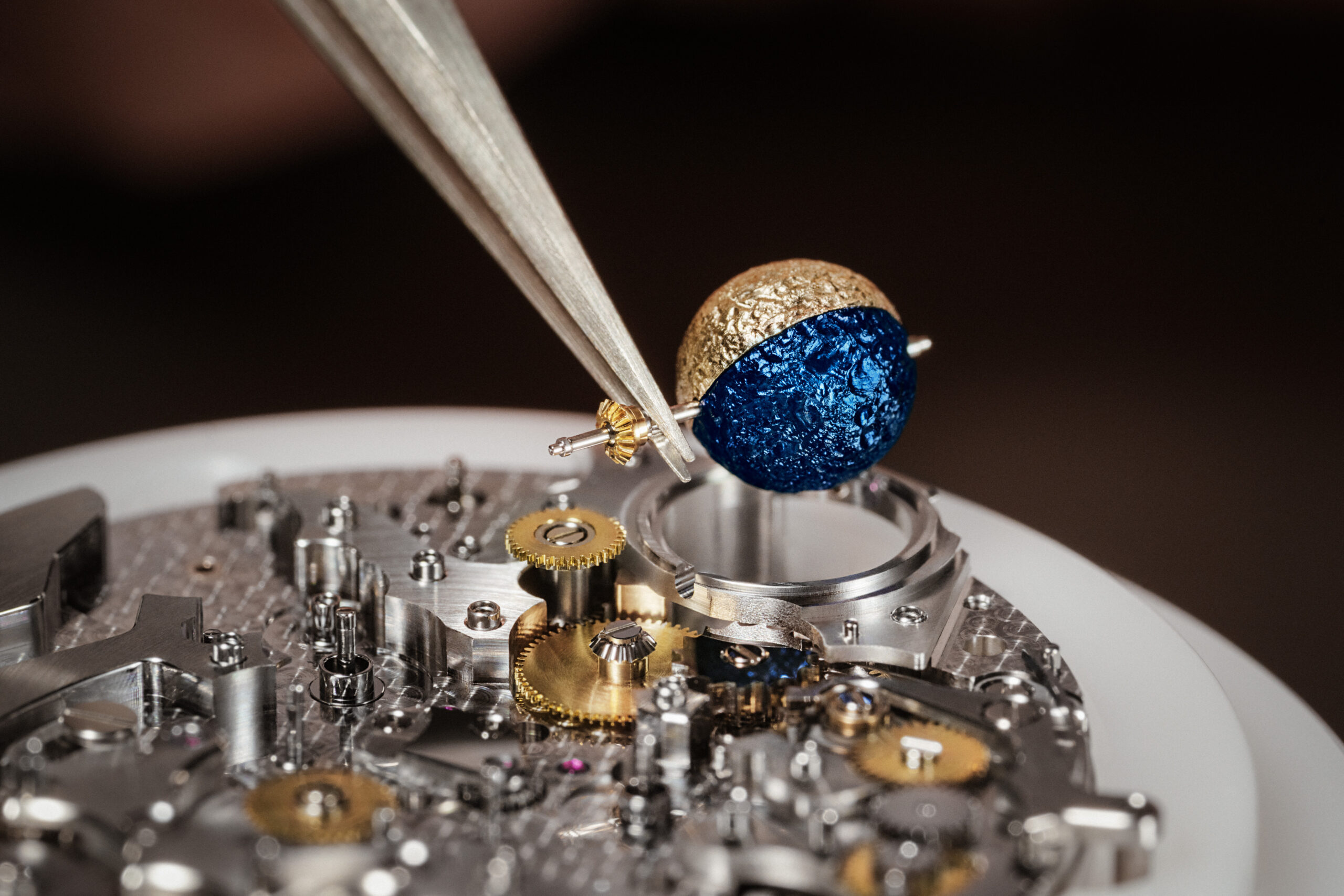
The spherical moon phase under assembly — hand-finished to display both phase and lunar age, correctable at any time without risk to the movement.
- Calibre 3670 front view showing gear train, engraving, and finishing of Vacheron Constantin’s movement for the Métiers d’Art Tribute to the Quest of Time.
- Calibre 3670 back view with retrograde control mechanisms, governor, and spherical moon phase system for the Métiers d’Art Tribute to the Quest of Time.
The movement beats at a high frequency of 5 Hz, a higher than normal frequency for grand complications. The ‘dual-mode’ retrograde time display – on demand or running continuously – requires a lot of torque at the barrel and combining a long power reserve and high frequency minimises disturbance to the amplitude of the watch caused by the time display. This blend of energy and autonomy is what allows the dual-mode retrograde display: the watch can run in an “active” mode with arms continuously displaying the time, or a “standby” mode where time is revealed only when prompted by a pusher, conserving energy in the background.
The front dial
Traditional métiers d’art sit alongside modern techniques throughout this masterpiece.The front dial sets the stage with a golden titanium figure – the horological heir to the Astronomer automaton of the La Quête du Temps clock – raising its arms across twin arcs, showing hours on the left and minutes on the right. By the feet, a twin retrograde power reserve.Above the head, a moon hand-engraved in titanium, one side in golden PVD, the other dark blue. Behind the figure is depicted the night sky of Geneva as it appeared on 17 September 1755, the founding date of Vacheron Constantin. The figure’s surface patina was achieved by sandblasting titanium after a 3N yellow gold PVD treatment. The sapphire dial layers are metallised for depth of colour, and applied indexes and arcs are in white and yellow gold. Every element is hand-finished, from the engraving of the moon to the satin brushing of the movement bridges.
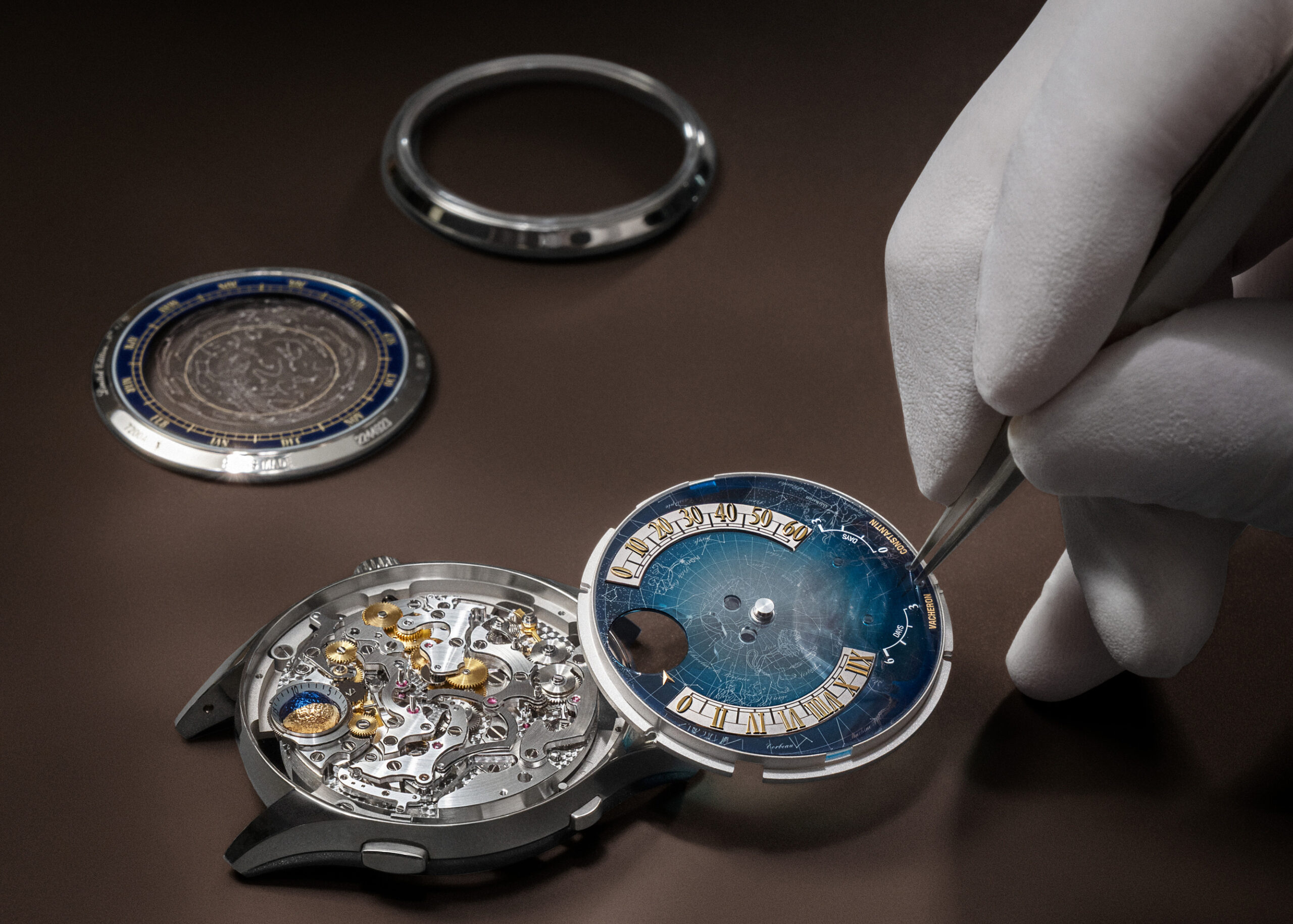
Assembling the dial layers: the Geneva night sky of 1755, sapphire discs, and applied indexes come together beneath the golden figure.

The golden titanium figure dominates the dial, with retrograde hours and minutes sweeping across twin arcs under a hand-engraved lunar display.
The sky on the reverse
Turn the watch over and the second dial reveals astronomical precision. A sidereal sky chart rotates in real time, tracking constellations with an accuracy deviation of just one day every 9,130 years. It is an astonishing feat that truly underscores Vacheron Constantin’s history of celestial watchmaking, from the astronomical pocket watches of the 19th century to the Les Cabinotiers Celestia Astronomical Grand Complication of 2017.

On the reverse, a sidereal sky chart accurate to within one day every 9,130 years — a continuation of Vacheron Constantin’s celestial lineage.
The caseback is sapphire crystal laser-engraved and metallised, with constellations, months and indications transfer-printed in gold and colour. Through this the owner can glimpse the movement itself, decorated with circular Cotes de Geneve finish, chosen to minimise reflection and enhance the legibility of the sky chart. The bridge carries the engraved emblem marking the 270th anniversary.
Tribute to the Quest of Time
The Métiers d’Art Tribute to the Quest of Time celebrates Vacheron Constantin’s historical astronomy and retrograde displays. The legacy of the 1930 Bras en l’Air pocket watch, which raised its arms to reveal the time on demand, can be seen in the golden figure today. Looking at pieces like Mercator wristwatches of the 1990s or the Patrimony Bi-Retrograde of 2007, there is a clear lineage with this new Métiers d’Art masterpiece – an incredibly impressive feat of contiunity in a brand that whose achievements have been exceptional in every century, through countless eras and catering to tastes across generations and cultures.
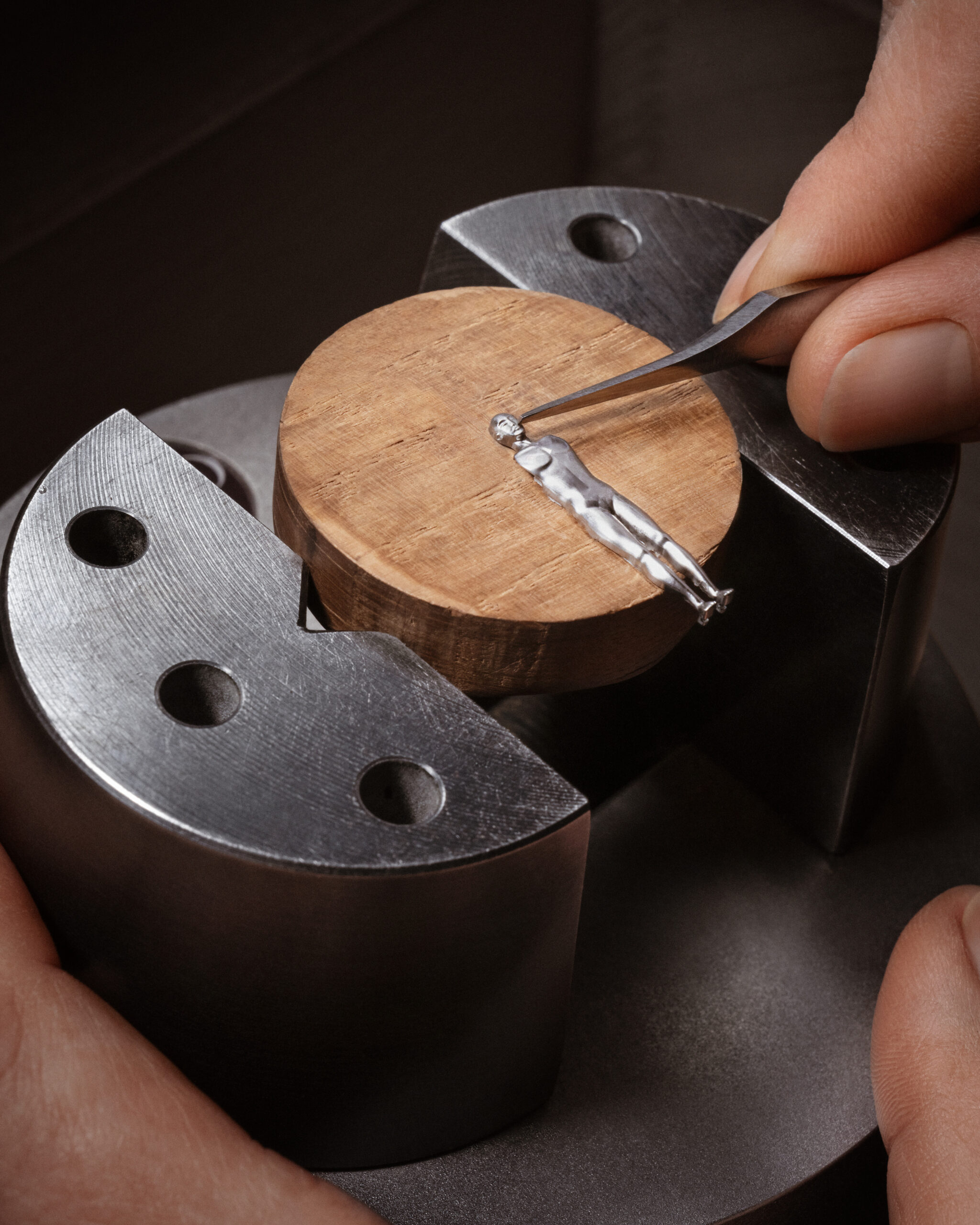
Shaping the golden figure by hand — métiers d’art at its most exacting, echoing Vacheron Constantin’s centuries-long tradition of craftsmanship.
The Quest Continues
Just 20 of these particular watches will ever be made. At 43mm by 13.58mm, it is more wearable than the amount of technical mastery packed inside it suggests; a true collector piece that François Constantin’s words of 1819 reminds us what “the quest” has always meant – its motto “do better if possible, and that is always possible.”
Tech Specs: Métiers d’Art Tribute to the Quest of Time
Movement:
Calibre 3670
Manually wound
Frequency of 5 Hertz (36,000 vph)
144 hours of power reserve
Dimensions: 34 mm (15””) x 7.8 mm
512 components, including 55 jewels
Indications:
Double retrograde hours and minutes in continuous ‘display‘ and ‘standby‘ mode or on demand
3D precision moon phase and age of the moon
Sky chart
Sidereal day
Double retrograde power reserve
Case:
18K white gold (750/1000)
43 mm diameter x 13.58 mm thick
Water resistant to 3 bar
Dial (Front):
Double sapphire dial
Three-dimensional titanium figure with golden treatment, with sandblasted patina finish
Titanium 3D precision moon, hand-engraved and with PVD treatment
Dial (Back):
Sapphire crystal
Hour Markers and Hands:
Two arc-shaped appliques in 18K gold with opaline finish
27 applied hour markers in 18K 3N yellow gold
Strap:
Dark blue alligator leather with alligator lining
Hand-stitched with gold thread
18K white gold folding clasp
‘Poinçon de Genève’ certified timepiece
Availability:
Limited and numbered edition of 20 pieces
Available only through Vacheron Constantin Boutiques.
Vacheron Constantin





